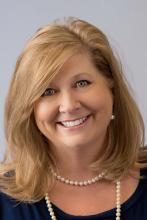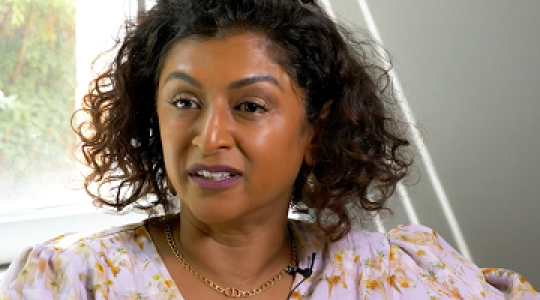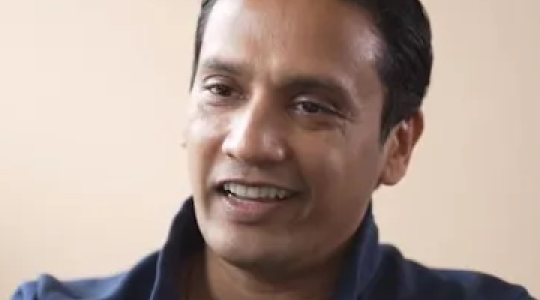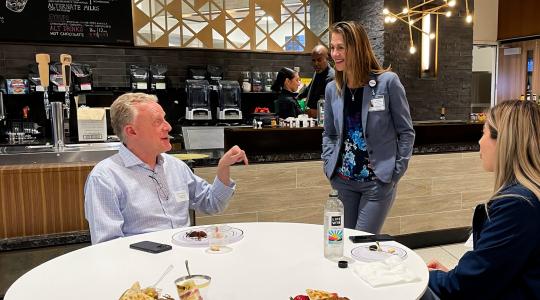
Full-time physician relationship manager (PRM) and part-time stage actress, Allison Stankey brings a range of emotions to her craft and one all-important quality to her role supporting primary care physicians (PCPs) — empathy.
“PRMs are the liaison between the provider and SWHR,” she explains. “First and foremost, we are working to earn the provider’s trust — we do have “relationship” in our title, after all — but we also need to be personable and professional, active listeners to their concerns. We need to be empathetic.”
A conversation with Allison reveals all these traits, and more.
“It’s important to have personal relationships with everyone in the practice, not only the providers,” she continues. “We have to know how the office works. We have to understand the office dynamics in order to meet the needs of that provider. No two clinics are the same. Each clinic’s practice patterns and workflows will affect how a PRM decides to work with that practice.”
It’s no surprise that today’s healthcare systems are focused on building and sustaining relationships with primary care physicians (also known as Community Affiliated or CAP providers). The partnership is important to the strength of the network but also to the success of individual providers — protecting their independence and autonomy while assisting with aspects of the practice that can be a drain on resources and interfere with the work they do best – care for patients.
The Physician Network team focuses on continually strengthening SWHR’s partnership with providers throughout North Texas.
“SWHR can support clinics with their administrative needs, as well as the data analytics needed to support better decision making, plus assisting with patient services for their most complex cases,” she explains, ticking services off on one hand.
“My biggest satisfaction is seeing a performance improvement plan that we’ve implemented in one of my partner practices deliver increased revenue PLUS improved patient satisfaction and loyalty. The doctors are happier. Their clinic team is happier.”
Allison acknowledges that the past two years have taken a toll on provider well-being. The demands of a global pandemic made all channels of care more challenging.
“I’m a champion for my providers,” she explains. “So, the emotional, empathetic component is real. The support I provide addresses the community’s need for holistic clinics that can do a lot of things well. With all the resources SWHR is able to provide, we can help a clinic develop better workflows and practice patterns, so the entire team feels less overworked, and yet the patient is experiencing fewer gaps in care.”
She continues. “When I encounter a practice facing challenges, the providers want to see that we genuinely care about them and their patients. I try to demonstrate follow-through every day to find the solutions that work for their clinics.”
Allison admits she occasionally goes over, around or through an obstacle to demonstrate the benefits of partnership with SWHR. “Some providers worry they can’t be successful within a value-based care system. They depend on the PRMs to know what will work for their unique situations and when to bring in subject matter experts who can help them.”
The boomer generation is aging into Medicare, which can limit the growth of independent practices, forcing health systems to adjust engagement strategies for future generations. At the same time, health systems are facing increasing competition for insured patients.
Allison finds that the different parts of her life support each other and, in turn, support the work she’s doing.
“My kids are grown,” she explains. “Recently, looking for a creative outlet, I got back into acting after a long break. I’m auditioning and performing on stage again. I see firsthand how an engaged and responsive audience helps me perform better, be better. That experience feeds into the role I perform in healthcare.
“As a PRM, it’s my job to connect the dots and help my providers perform with greater success. I don’t think I could do this job without leading with empathy. I see first-hand how hard the providers work to optimize outcomes. If I’m the patient – if one of my children is the patient — I want to know I’ve got a first-class team backing up that provider every step of the way.”
She pauses a moment trying to give voice to why SWHR feels like more than a job to her. “This place is my second family,” she says, finally. “The purpose statement — building a better way to care, together — those aren’t just words to me. It’s my entire way of working.”



